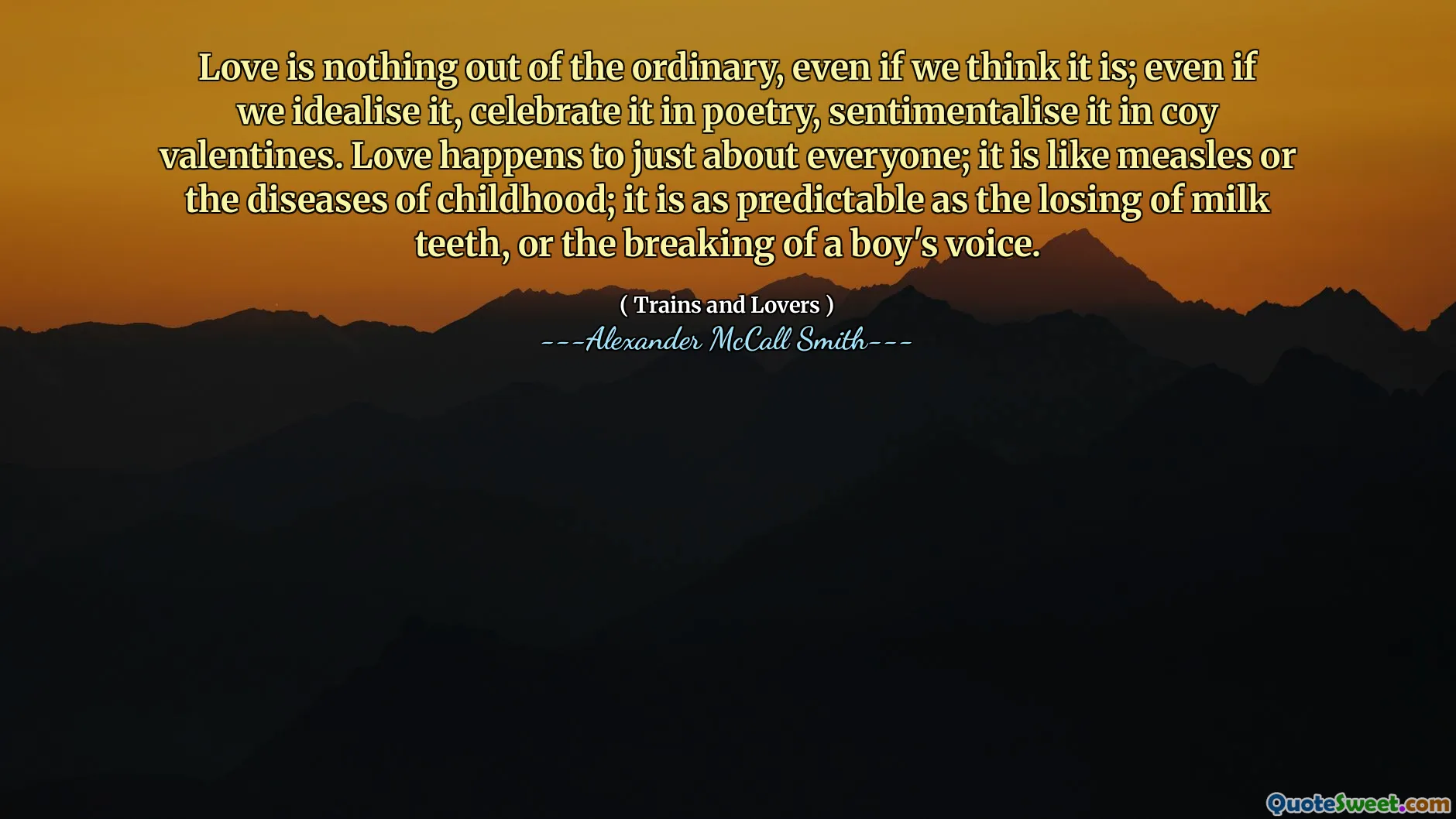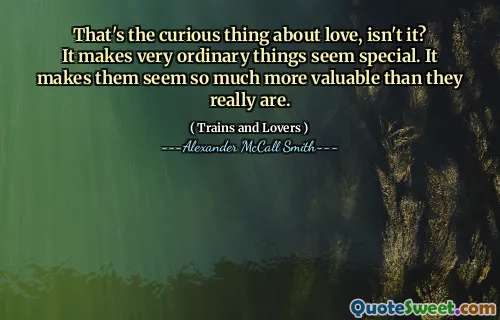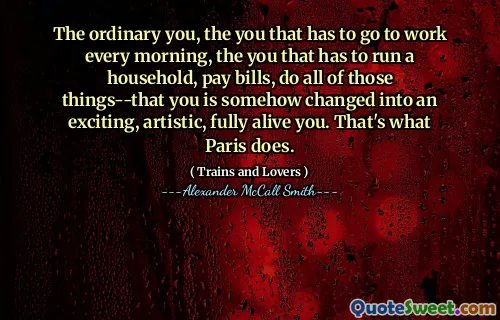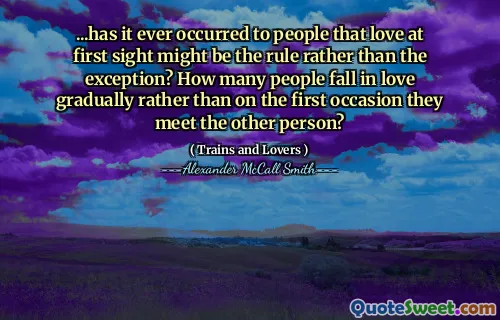
Love is nothing out of the ordinary, even if we think it is; even if we idealise it, celebrate it in poetry, sentimentalise it in coy valentines. Love happens to just about everyone; it is like measles or the diseases of childhood; it is as predictable as the losing of milk teeth, or the breaking of a boy's voice.
In the excerpt from Alexander McCall Smith's "Trains and Lovers," the author presents love as a common human experience rather than an extraordinary event. Despite societal tendencies to idealize and romanticize love through poetry and gestures, it is depicted as a natural occurrence that touches everyone at some point, much like childhood illnesses. This perspective relates love to universal milestones in life, suggesting that it is an inevitable part of growing up.
By comparing love to familiar childhood experiences such as losing milk teeth or changes in voice, McCall Smith emphasizes its predictability. He challenges the notion that love is something unique or rare, encouraging readers to appreciate its ordinary nature. Ultimately, this portrayal demystifies love and invites a deeper understanding of its fundamental role in human life.











